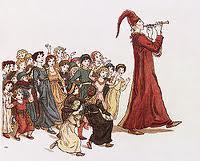This figure is shocking. One fifth of all children! Yesterday, I read that over 30% of all homes in England were not connected to, or did not use, the internet. Therefore, the figure is even worse.
 Layoutsparks.com
Layoutsparks.com A large number of users of Facebook, Twitter and YouTube were under the minimum age of 13. Figures taken from the survey showed the most common bad experiences among children were bullying and trolling. This involves insulting or intimidating others, usually under a pseudonym, to provoke a reaction.
Earlier this month, a 14-year-old girl hanged herself. Her father said she had been sent abusive messages on social networking site, ask.fm., which had 13.2 million daily visitors worldwide in June. Following the death, the Latvia-based website ordered a law firm to carry out a full and independent audit including its safety features.
Website members can ask each other questions and then get replies, which include text, photos and videos. One of its most controversial features is the ability for members to pose questions to others anonymously.
 www.nls.uk
www.nls.uk Once, children played outside on the streets or in country areas and learned how to deal with bullying in the playground by sticking up for themselves in a verbal and physical way. More often than not, another child would intervene. At home, they could read books like fairy tales for their amusement. Later, the young people established close friends with whom they could discuss their problems.
In Nuremburg, Germany, preschool children play outside in all weather under supervision. On farms in Australia, children are free to roam and learn all about nature and the animals.

It seems there is no halting progress, if we could label cyberspace with such a term. But it seems to me that humanity's young are bearing the brunt of a new form of danger.
If the Pied Piper comes along with an offer of help, we'd better pay him his dues.

 RSS Feed
RSS Feed






